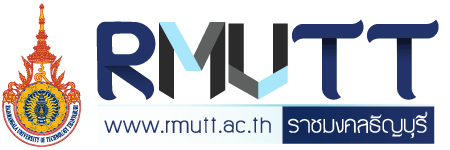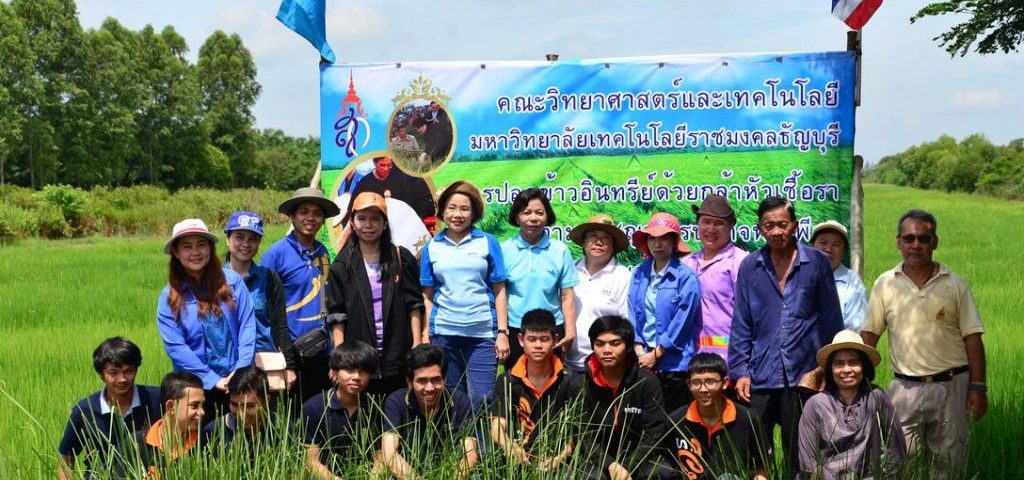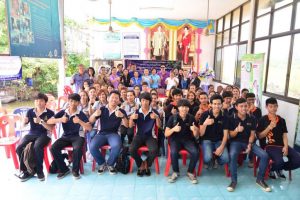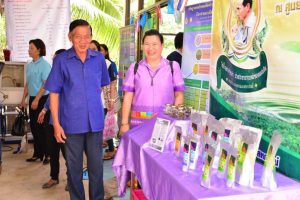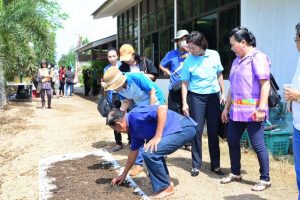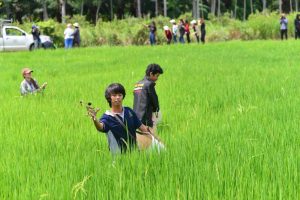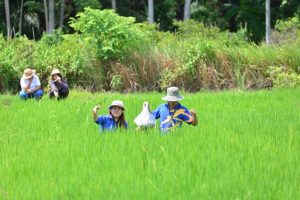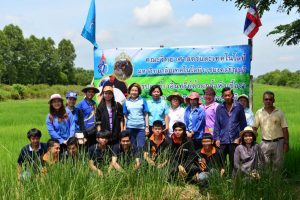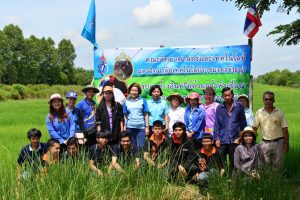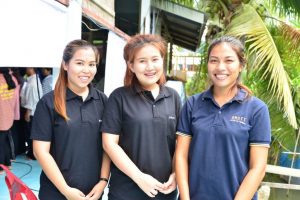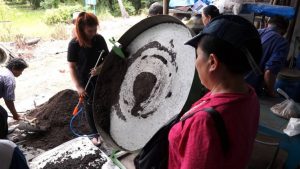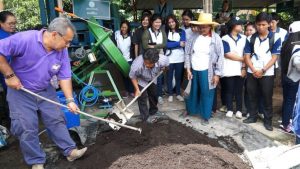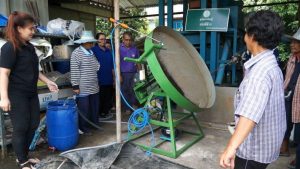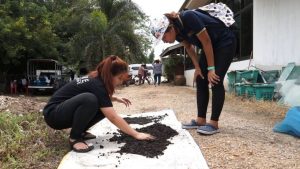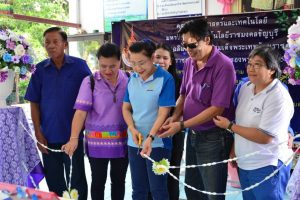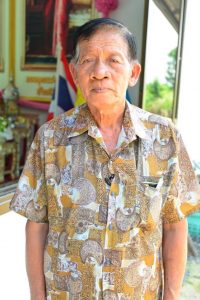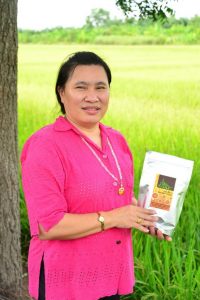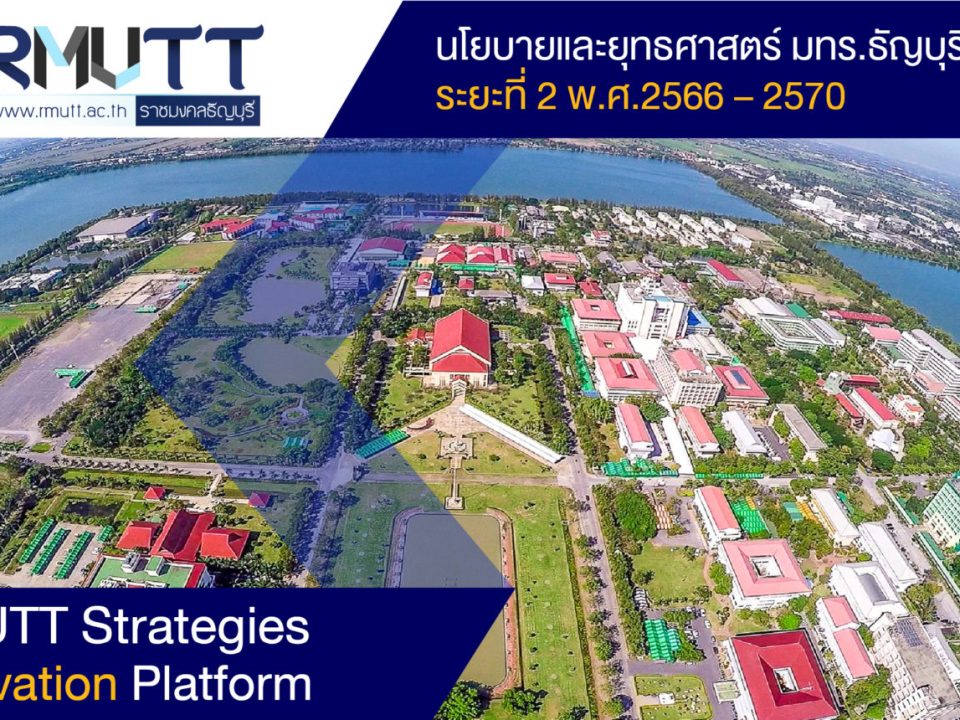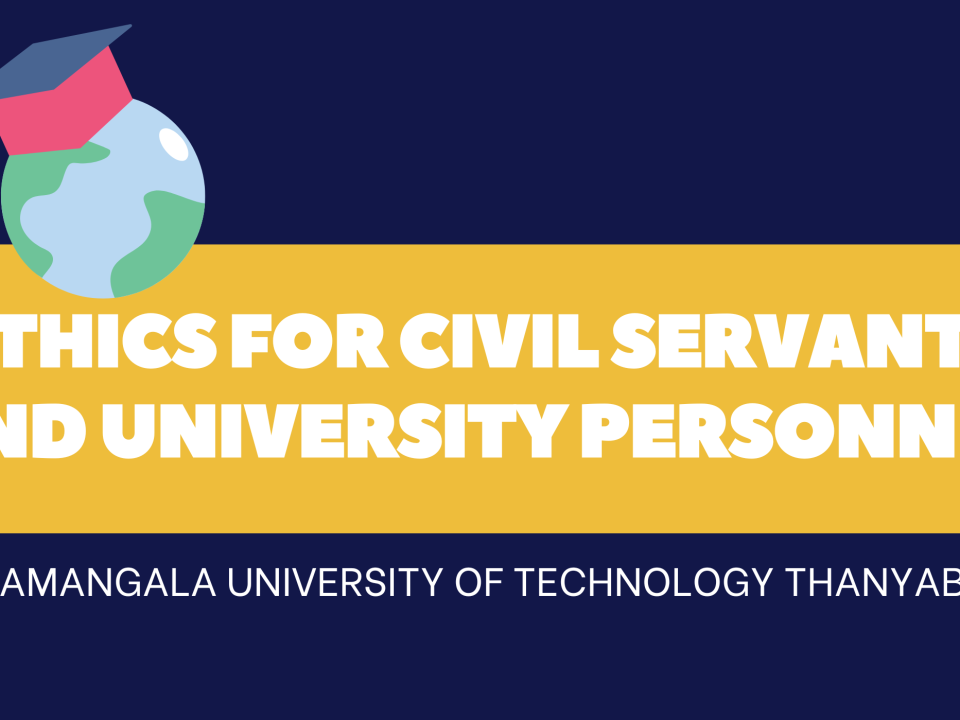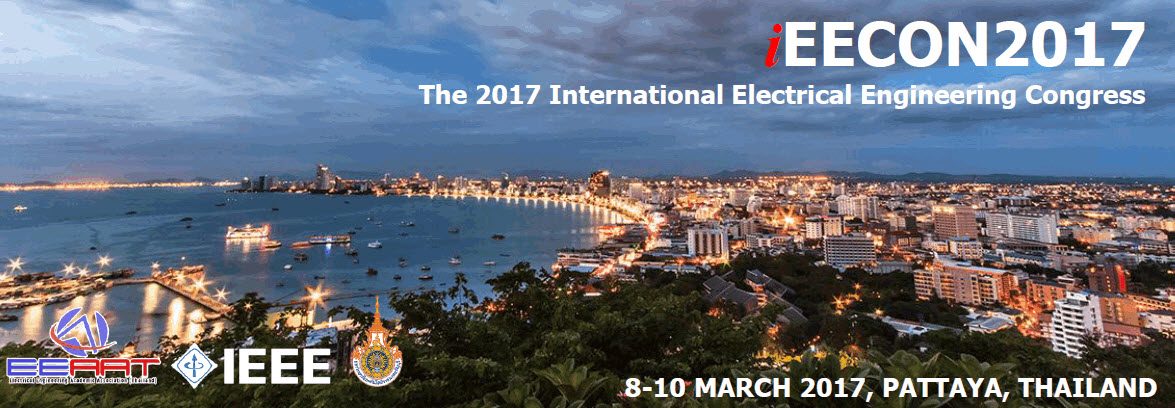
iEECON2017 : The 2017 International Electrical Engineering Congress
30/11/2016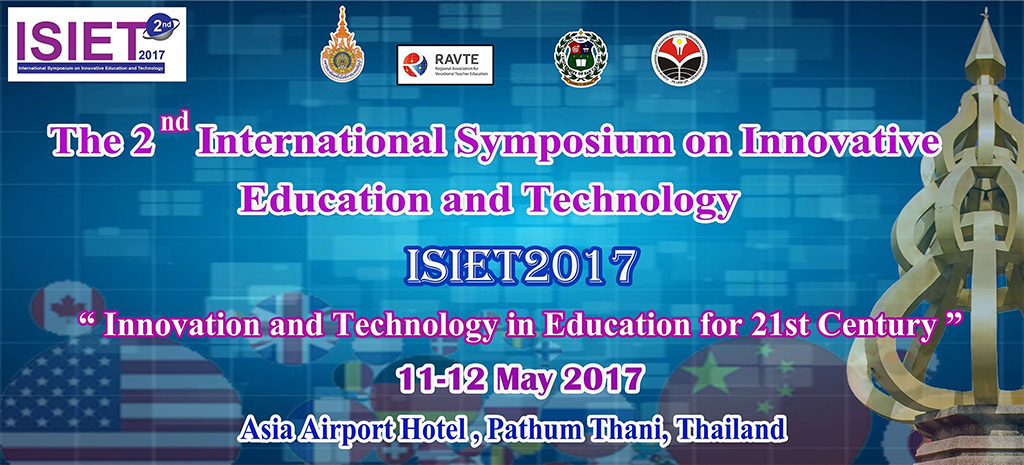
ISIET 2017 : The 2nd International Symposium on Innovative Education and Technology
09/12/2016
RMUTT Faculty of Science and Technology Brings Biotechnology Innovation to Serve Bueng Ka Sam Community in Pathum Thani Province
Biotechnological innovations stem from various antagonistic fungi of the organic community model. Based on the philosophy of sufficient economy of Bueng Ka Sam community in Pathum Thani province, this project will improve its seventh community’s quality of life, along with celebrating the 60th birthday of HRH Princess Maha Chakri Sirindhorn.
Asst. Prof. Dr. Sukhan Rattanaloeadnusorn, permanent professor in the Bachelor of Biology, Faculty of Science and Technology at RMUTT, and project leader states that from field research and exploring the severity of the problems of the seventh community, the soil is acidic and has a pH of 3-4. The quality of the soil is hard and not easily crumbled due to using chemicals to increase the quantity of major and minor nutrients in the soil. Eliminating plant diseases and insects is costly and not productive. The yield also contains heavy metal, a contaminant, which does not meet the standards of GAP, enforced by the Department of Agriculture. To solve this problem, Dr. Sukhan devised a biotechnological innovation from various antagonistic fungi found in the community’s soil. She integrated principles of sufficient economy to transfer knowledge about biotechnology to make the community stronger on the foundation of equality, immunity, and sufficiency, which led to the sustainable development of the environment, society, economy, and culture, in order to reach the organic community model.
For community outreach services, transferring knowledge about biotechnology to solve problems was achieved through the project: Three factors of the environment: Agricultural production to improve biological substances using biotechnological innovations from fungi in recyclable wastes. The project also had to align with the community’s needs, network of RMUTT Engagement, government, private sector, community establishments, such as the Department of Agriculture of Nong Sua district, Department of Agriculture of Pathum Thani province, Nong Sua district Community Development, Department of Land Development: District 2, Rice Department of Thailand, Department of Fisheries, and community leaders of Hirunponganusorn School.
Furthermore, there were projects to solve problems and improve acidic soil with fungi from recyclable wastes, project to develop technology for agricultural communities, project to investigate acidic soil and eliminate contaminated metal, project to eliminate waste in order to convert OTOP products in terms of society and economy, and project to produce substances using biotechnological innovations from SME. In addition, there were also projects to develop organic agriculture, project to manage development of Beung Ka Sam community, project to produce rice seeds and preserve species, project to convert community resources using local technology for commerce production, project to establish organic community model according to the philosophy of sufficient economy, be a community to develop students, citizens, and increase practicality in terms of art, culture, as well as to celebrate Father’s Day and Mother’s Day.
Mr. Lek Tongton, former chief of the seventh community says that he has continually conducted biological experiments and wants to reduce the production costs. “I have decided to apply to the university, conduct field research and experiment with various innovations in the rice fields, including lemon, palm, and investigate the differences in using various chemicals” said Mr. Lek Tongton. From initially investing 5,000 baht/rai, it has decreased to 2,200 baht/rai. Besides this, the team of professors also taught the community how to make products found in the community, such as lemongrass oil, and established an organic community model.
Ms. Patcharawadee (Baithong) Suneephan, a first-year graduate student in the Faculty of Applied Biology says that, from doing field research and helping professors, findings yield that the community has a lot of biodiversity. Soil and recyclable waste can be applied to reduce production costs in order to increase the yield. Currently, she and her graduate friends are responsible for helping increase the yield of lime. “Besides innovating a formula for fertilizer, I would like to develop and apply biology practically” says Ms. Baithong.
Overall, the project to improve the quality of life of residents in the 7th community in Beung Ka Sam, Pathum Thani province led to positive effects on the environment and decreased production costs for residents.
